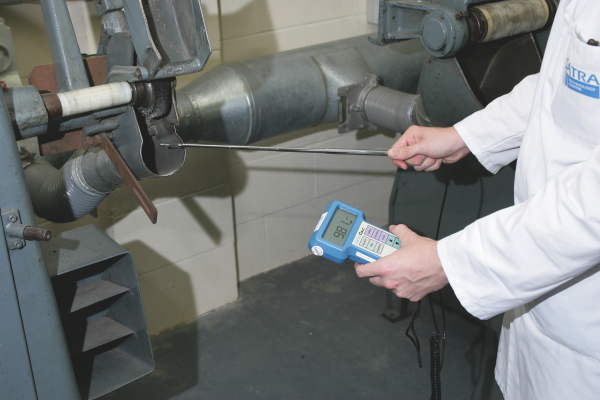Local exhaust ventilation and dust extraction systems are the kinds of things that are incredibly important in so many business areas, yet cannot be expected to be common knowledge to business owners. It’s a little like driving a car every day of your life, but having no idea of how a catalytic converter works – you don’t need to know how it works, but rather just that it’s there and doing its job properly.
However, just as is the case with so many things across the workplace is does indeed fall under the responsibility of the business owner to make sure all such LEV systems are in full working order and doing their jobs as they should be. Not only can poor ventilation systems and the like bring all manner of problems to the workplace, but it’s also in violation of British governmental recommendations to allow them to fall into a state of disrepair.

So, with this in mind, what follows is a quick introductory FAQ to the subject of LEV inspection and testing, which may be of interest to business owners and floor managers:
1 – Is It True That I Have to Have My LEV Installations Inspected?
In a word, yes. That is of course unless there is someone within the workplace that has the necessary training and qualifications to carry out the process on behalf of the business, but as this tends to be the case for almost no working businesses, professional inspection is of paramount importance. It’s a clear and important part of health and safety law to ensure that the air circulating in any given workplace is safe for the employees therein to breathe. This means making sure that any harmful fumes, dust and generally disagreeable elements are removed, which in turn calls for fully working and efficient extraction systems.
According to UK law, a full inspection and servicing process if necessary should be carried out at least once each year, though this will of course vary in accordance with the size, type, age and nature of the system along with how often it is used and for how long.
2 – Why Does Testing Matter?
The reason testing of these kinds of systems matters is the simple fact that there can often be problems manifesting behind the scenes that give absolutely no indication than anything is wrong. It’s natural for so many business owners to just ignore things until a problem becomes something altogether more serious, by which time the damage may be done…not to mention irreparable. Over time, an LEV system is guaranteed to lose efficiency and effectiveness, which in turn puts the quality of the air and thus the health of those present in jeopardy.
It’s only with regular testing that the business is able to gain an important insight into the health of the system as a whole, in order to ensure that any necessary quick fixes can be implemented before the whole thing falls into disarray.
3 – Is It a Worthy Investment?
What’s important to remember when considering a full LEV installation inspection is the way in which there’s so much more to it than the health and safety of workers alone…although this is of course the primary concern. Like all major machinery across the board, the better you look after an LEV installation and the more you keep tabs on its health, the longer it will last and the less costly its long-term repair bills will be. So, while it may constitute an expense in its own right, it’s an expense that’s guaranteed to save the business money long term.
4 – Who Can Carry Out the Necessary Tests
Last up, as mentioned a little earlier it takes someone with a very specific set of skills and experiences to carry out these kinds of tests, not to mention a rather large arsenal of specialist equipment. Roughly translated, while it’s one thing to keep an eye on LEV health on a day-to-day basis, it’s another thing entirely to have the system deeply and professionally evaluated from top to bottom.
As such, in order to make sure you remain in compliance with UK law it is imperative that the job be handled only by those that are fully qualified to do so. The vast majority of LEV installation testing services on the UK market are of course 100% above board, but it’s still important to check credentials and experience before going ahead with a deal.
































No Comments
Leave a comment Cancel